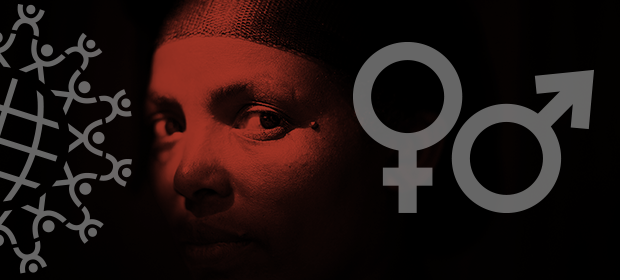Where We Work
See our interactive map


Today, between 65% and 85% of health workers are women.
Women are not only indispensable contributors to health care delivery—they are the key to achieving universal health coverage.
Unfortunately, women in the health workforce around the world face challenges far beyond the everyday tasks we generally associate with health care. They face challenges to their human, economic, and labor rights. This is particularly true for women who work in the so-called informal care economy—that is, community- and home-based care, which millions of people around the world rely upon every day.
Occupational segregation is one of the most pervasive and durable forms of gender discrimination.
We must work to fully integrate women in the formal health economy in health systems that protect the earning potential, economic security, and labor rights of their female workers. But these five inconvenient truths highlight how health systems worldwide continue to give women—particularly in the informal care economy—short shrift:
1. Health is a gender-segregated sector.
It concentrates women and men at different levels in the health system, and in different occupations, jobs, and tasks. Women are typically concentrated at or near the bottom in work that is un- or underpaid and has fewer opportunities for advancement and decision-making.Occupational segregation is one of the most pervasive and durable forms of gender discrimination. Working in a gender-segregated job in a gender-segregated sector puts women at risk for wage discrimination, and has powerful short- and long-term implications for earning capacity, economic security, and advancement. And these implications are particularly evident in community- and home based health care—the majority of which is provided by women.
2: Community- and home-based health workers often work under very difficult conditions.
They often have to function without the supplies, supervision, and information they need. They may face harassment and even violence. Many struggle with the fact that clients and peers fail to recognize them as skilled workers who have a right to fair wages for their work. Far too many are volunteers, are not compensated at all for their work, and work unregulated working hours. A Zambian advocate for health worker rights once observed that it is simply not sustainable to “try to achieve universal access through continuing to exploit women’s unpaid labor.”
3: Their work comes at a personal cost.
In the short term, health workers in informal community- and home-based jobs face lost income, poor psychological and physical health, and often lose out on opportunities for education, training, and promotion. In the longer term, they have less access to social protections such as insurance, leave time, and pensions, which are typically tied to paid employment status.
4: Much of their work is invisible.
Work in community- and home-based health care is often undocumented in sex-disaggregated labor force statistics, in national health accounts, in calculations of GDP—i.e., not counted as productive work Even though this un- and underpaid care economy subsidizes the formal care economy. If this type of work remains invisible, it remains unprotected by labor laws.
5: Work in community- and home-based care in some settings does not meet standards of decent work.
As defined by the International Labour Organization, decent work offers:
We are in a period of transition in terms of compensation for what is now unpaid community- and home-based care labor. But the growing care economy—much which remains informal and unpaid—has become a commonly identified source for future job growth in low-income and industrialized countries because of the challenges of caring for aging and chronically ill populations.
Women deliver economic and social value at the front lines of health care.
Can work in the growing care economy meet standards for decent work?The answer is yes—if health workforce advocates and health employers implement international agreements that aim to protect and promote women’s earning capacity and economic security, and work toward fully integrating women into the formal economy in jobs that are governed by laws and policies for fair remuneration; reasonable working hours and workloads; social protection; and safe working conditions.
Becoming a frontline health worker can economically empower women, but only if their human, economic, and labor rights are respected, promoted, and protected in the health systems in which they work. And new paid jobs in the health economy will also likely bring more men into this growing care economy, producing more health workers.
Women deliver economic and social value at the front lines of health care. Let’s not continue to take this for granted.
This post is based on a presentation at Women Deliver 2016.
Get the latest updates from the blog and eNews




